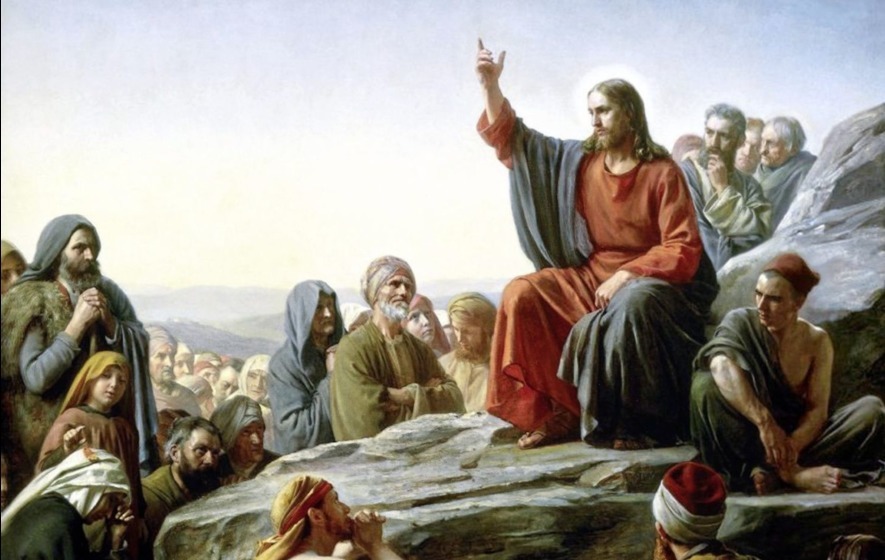
First Reading 1 Samuel 26:2, 7-9,12-13,22-23
David does not kill Saul.
Responsorial Psalm Psalm 103:1-4,8,10,12-13
A song in praise of God's mercy
Second Reading 1 Corinthians 15:45-49
As we bear the image of Adam, so we will bear the image of the one from heaven.
Gospel Reading
Luke 6:27-38
Jesus teaches his disciples to be merciful as God is merciful.
Background on the Gospel Reading
Today's gospel reading is a continuation of the teaching that began in last Sunday's gospel. We continue to hear Jesus' Sermon on the Plain. Recall that in Luke's Gospel, this teaching is addressed to Jesus' disciples. This is in contrast to the parallel found in Matthew's Gospel, the Sermon on the Mount, in which Jesus' words are addressed to both the disciples and to the crowds.
These words from Jesus' teaching are familiar to us. They constitute the crux and the challenge of what it means to be a disciple: Love your enemies, turn the other cheek, give to those who ask, do unto others, lend without expecting repayment, judge not lest you be judged.
There are several similarities between Luke's and Matthew's report of Jesus' great teaching. Both begin with the Beatitudes. Matthew includes nearly all the content that Luke does; the Sermon on the Mount in Matthew's Gospel is longer than Luke's Sermon on the Plain. There are, however, differences in language and nuance. For example, Matthew presents this portion of the teaching as a contrast between Jesus' teaching and the teachings of the law and the prophets. This is in keeping with Matthew's concern to address his predominantly Jewish audience. It is likely that Luke omits this contrast because it was unnecessary for the Gentile believers for whom Luke is writing.
Another point of contrast between Matthew and Luke's presentation is the terminology. In Luke, Jesus contrasts the behavior of his followers with the behavior of “sinners.” In Matthew, Jesus contrasts the behavior desired with the behavior of tax collectors and Gentiles. Matthew concludes the teaching about love of enemies with the admonition to be perfect as God is perfect; Luke concludes by emphasizing God's mercy.
In both Gospels, Jesus' words challenge those who would follow him to be more like God. God loves us beyond our expectations, beyond anything we can possibly imagine. In response to God's love, we are to love as God loves, beyond expectations and with a depth beyond imagining.
No comments yet. Be the first to say something!